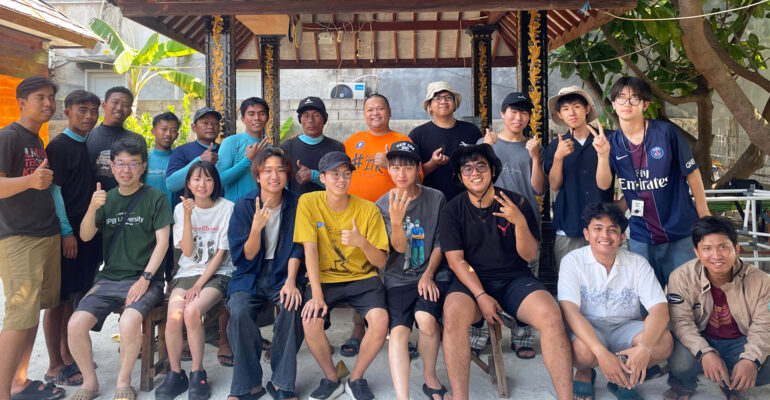Dospulkam IPB University Develops Coral Microfragmentation for Smiling Coral Indonesia Community

IPB University’s Dosen Pulang Kampung (Dospulkam) program has brought academics back to their home areas to share knowledge, particularly in efforts to conserve the maritime environment. One of the latest activities of this program is the coral microfragmentation training held on Pramuka Island, Kepulauan Seribu, involving the Smiling Coral Indonesia Community.
The training aims to restore coral reef ecosystems damaged by coral bleaching and other environmental threats. For three days, participants had the opportunity to learn with IPB University lecturers and practice various techniques related to coral nurseries and restoration.
The training focused on five main aspects of coral restoration. First, an introduction to various coral nursery methods. Participants were taught about coral nursery methods, from planting techniques to sustainable maintenance in the marine environment.
Second, microfragmentation cutting techniques. Microfragmentation is a method that accelerates coral growth through cutting corals into small fragments of 1-3 cm in size. This technique accelerates the regeneration of damaged corals. Third, the technique of attaching coral fragments to cement media. After cutting, coral fragments are attached to a cement substrate, creating a stable medium for coral growth.
Fourth, coral nursery construction techniques. Participants were also trained in building coral nurseries, structures designed to protect and support the growth of new corals. Finally, coral health monitoring techniques in the nursery. Through this training, participants were equipped with the skills to monitor coral health, ensuring that the coral fragments being nurtured remain healthy and can grow well.
This training successfully produced more than 1.000 coral fragments with sizes ranging from 1 to 3 cm. These fragments are expected to contribute to improving the condition of the coral reef ecosystem on Pramuka Island and surrounding areas, which have been significantly damaged.
“IPB University has been developing coral fragmentation methods since the late 1990s which became the starting point for the development of coral transplantation in Indonesia. Currently, the microfragmentation method can be carried out more effectively because the equipment and technology have supported it,” said Dr Beginer Subhan, a lecturer in Marine Science and Technology at IPB University who served as the main mentor in this training.
“This is a new experience and a new method for us. So far, we can only see it in videos from various social media. With this training, we can directly practice the actual technique,” said Gian, one of the participants from Smiling Coral Indonesia Community.
According to Dr Beginer, this training program is part of IPB University’s commitment through the Directorate of Agromaritime Community Development (DPMA) to continue to support the preservation of the marine environment and the empowerment of local communities. With the active involvement of lecturers and the enthusiasm of local communities, it is hoped that coral restoration can further develop and become an important part of restoring Indonesia’s coral reefs affected by climate change and human activities. (*/Rz) (IAAS/RUM)



